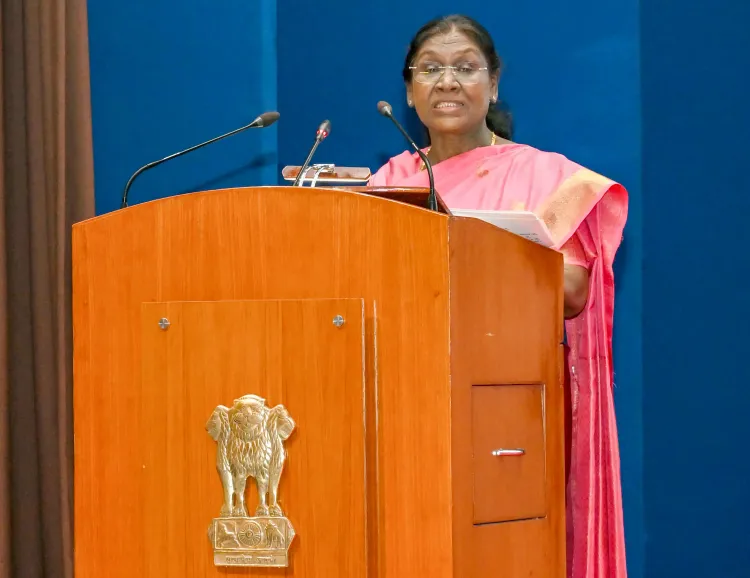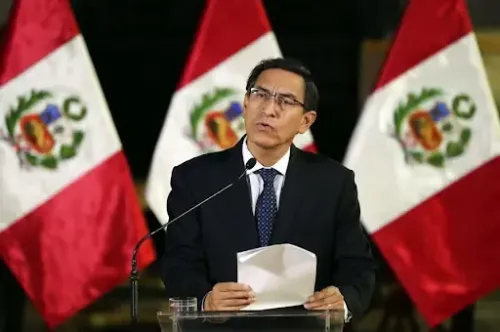Is the Constitution India’s ‘National Text’ That Directs Institutions and Personal Conduct?

Synopsis
Key Takeaways
- The Constitution serves as a guiding framework for institutions and personal conduct.
- Public participation was integral in shaping India's Constitution.
- Constitution Day highlights the importance of unity and equality.
- Proposed creation of child-friendly versions of the Constitution.
- Mutual coordination among government branches is essential for progress.
New Delhi, Nov 26 (NationPress) President Droupadi Murmu emphasized on Wednesday that the Constitution of India transcends being just a legislative document; it serves as the “national text” that steers both institutions and individual behavior.
Addressing the celebrations for Constitution Day organized by the Supreme Court, President Murmu paid tribute to the founding fathers who designed the largest written Constitution for the world’s most extensive democracy. She stated that the Constitution continues to be the wellspring of India’s unity, republican identity, equality, and the peaceful evolution of its social, economic, and political landscape.
“It is a source of national pride that the confidence in our Constitution has grown among the general public and experts alike,” she remarked, noting that the inquiry ‘What does the Constitution stipulate on this matter?’ has become pivotal in assessing the legitimacy of any action or system.
The President highlighted that the architects of India’s Constitution operated with a steadfast commitment to “national interest”, creating a lasting foundation for unity. She recalled the extensive public involvement during the drafting process, mentioning that around 53,000 citizens witnessed the Constituent Assembly’s deliberations from the Visitors’ Gallery.
President Murmu noted that numerous suggestions were contributed by the public, with representatives from various regions and social groups playing a vital role in shaping the Constitution. She acknowledged Dr. B.R. Ambedkar’s significant influence, stating that Constitution Day, officially recognized in 2015 to commemorate his 125th birth anniversary, honors his “extraordinary contribution”.
Additionally, she recognized the contributions of female Assembly members, such as Dakshayani Velayudhan, who stressed the importance of the Constitution providing people with “a new framework for living”.
The President conveyed that while the Constitution is a legislative document, it has evolved into “a reference book for the people” through public engagement and broad representation. She proposed developing a child-friendly version of the Constitution in various Indian languages to ensure that future generations “remain connected” to constitutional ideals from a young age.
“A positive character can be nurtured when constitutional ideals and duties are ingrained during a child's formative years,” she asserted. President Murmu underscored that the executive, legislature, and judiciary must persist in fortifying the constitutional framework “through mutual coordination”, asserting that such synchronized functioning would propel India towards becoming a developed nation.
In concluding her address, she invoked the Supreme Court's motto “Yato Dharmastato Jayaḥ”, stating that in a democracy, “where constitutional values prevail, victory prevails”.









